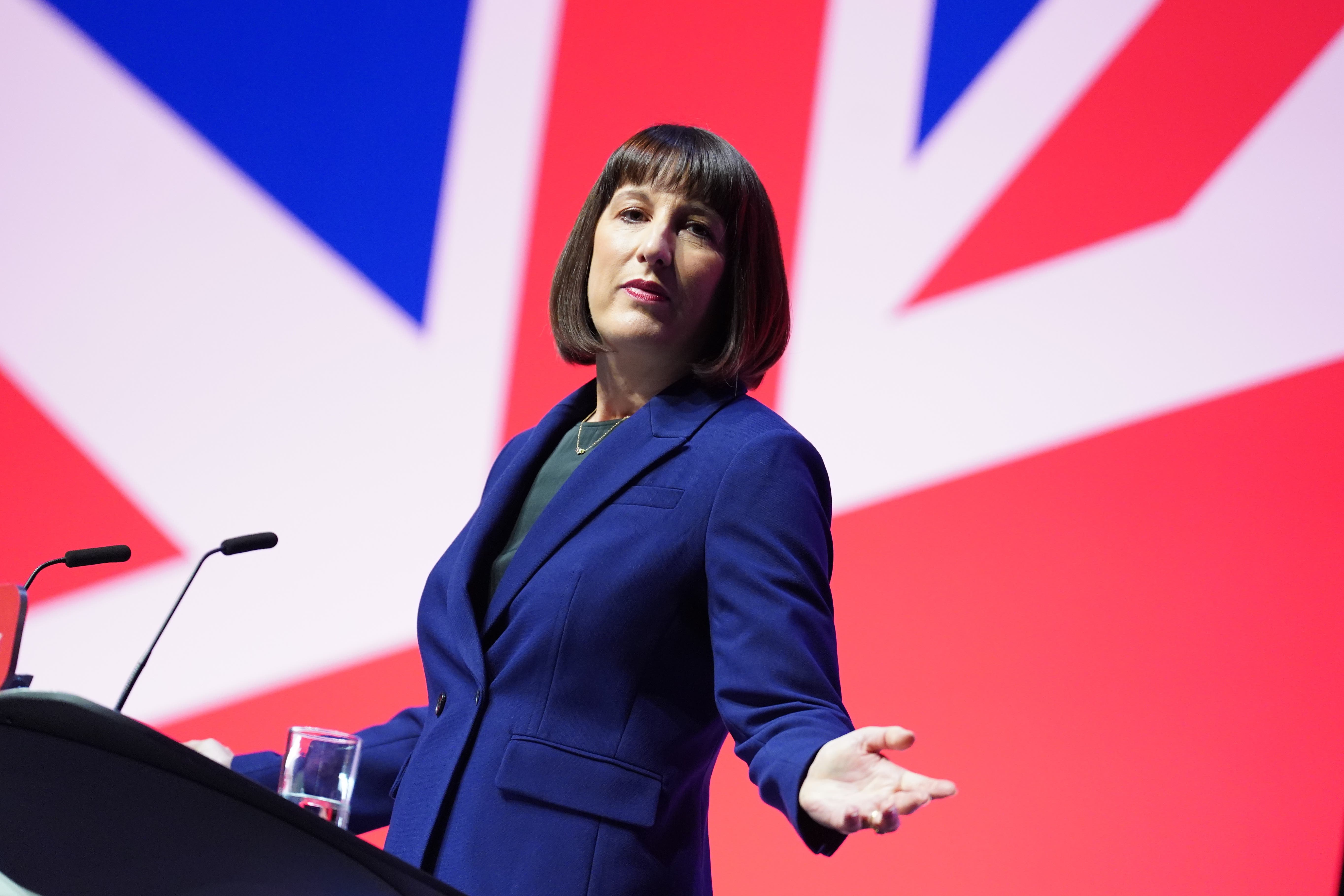Reeves seeks greater use of technology to boost UK productivity
The shadow chancellor said the availability of migrant workers had led to slow take-up of robots and other technology.

Your support helps us to tell the story
From reproductive rights to climate change to Big Tech, The Independent is on the ground when the story is developing. Whether it's investigating the financials of Elon Musk's pro-Trump PAC or producing our latest documentary, 'The A Word', which shines a light on the American women fighting for reproductive rights, we know how important it is to parse out the facts from the messaging.
At such a critical moment in US history, we need reporters on the ground. Your donation allows us to keep sending journalists to speak to both sides of the story.
The Independent is trusted by Americans across the entire political spectrum. And unlike many other quality news outlets, we choose not to lock Americans out of our reporting and analysis with paywalls. We believe quality journalism should be available to everyone, paid for by those who can afford it.
Your support makes all the difference.Reliance on cheap migrant labour has stifled the UK’s productivity, shadow chancellor Rachel Reeves has said.
Countries like Japan or South Korea had adapted to ageing populations by increasing the use of robots and technology to increase productivity, Ms Reeves said.
But, in the UK, companies had been “slow” to take up new technology because of the availability of workers from overseas, she added.
She told a fringe event at the Labour conference in Liverpool: “What policymakers and business leaders said to me in Japan was, well, necessity is the mother of all invention, because they needed the robots to make up for the lack of population growth.
“But it does mean that productivity in Japan is pretty high. We went to this fascinating place when we were there, which was a factory making robots, but it was robots making robots. It was really quite something.
“That use of technology is quite exciting in countries like Japan, but I think we do have a lot to learn from it because our productivity growth has been very poor in Britain.
“And, actually, rising population growth from immigration has sometimes exacerbated the slow take-up of technology in the UK economy because you could hire workers pretty cheaply rather than invest in the expensive, but in the end productivity-enhancing, technology.
“So, I think there are real opportunities ahead to get some of that productivity growth through the use of technology.”
Ms Reeves also warned the UK was in a “dangerous” position because it had not responded to the shift caused by Joe Biden’s Inflation Reduction Act, which has used government subsidies to boost green businesses.
Labour has plans for up to £28 billion a year of borrowing to fund a green prosperity plan and Ms Reeves said: “Around the world, you have got governments that are trying to seize these opportunities and the response from British ministers earlier this year when that inflation Reduction Act came in was ‘this is dangerous’.
“I’ll tell you what is dangerous, it’s sitting on the sidelines while others are in a global race for the jobs and industries of the future.”
She said that with the US act, “the game has changed and we’re just not in the race at the moment, and I think that’s a massive missed opportunity”.
Mr Biden’s legislation was in part an attempt to bring green industry to the US and end reliance on China for key products.
Ms Reeves acknowledged that “globalisation as we once knew it is dead” but “there is a new form of multilateralism” between like-minded countries.
On the European Union, she hoped Labour would “normalise” relations with Brussels following the post-Brexit turmoil.
Her hopes for changes to the Brexit deal include a new food and farming agreement, mutual recognition of professional services qualifications and measures to make it easier for British artists to tour in the EU.
“The Labour government does not want to water down standards for workers’ rights, environmental standards and food standards, and so we hope that it will be easier for a Labour government to secure a deal,” she said.
“But I’m not naive about the scale of those challenges and the difficulty of those negotiations.
“But I hope that the European Union will see with a Labour government a desire to normalise relationships, work in greater partnership based on the shared values and the things that do bind us together.
“It won’t be easy, but it is an ambition that we have.”